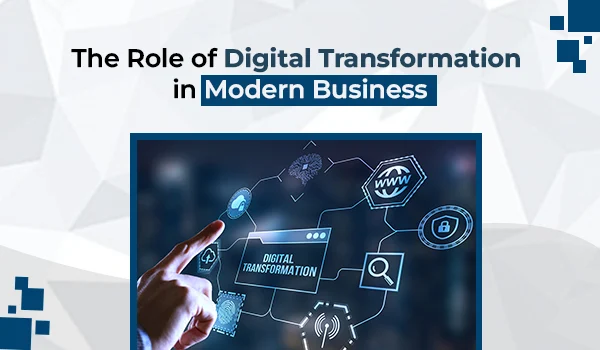In the rapidly evolving digital landscape, modern enterprises are faced with an imperative: adapt or fall behind. Digital transformation is no longer a choice but a necessity for companies seeking to thrive in this dynamic environment. This comprehensive approach requires a multifaceted strategy, leveraging technology to improve efficiency, enhance customer experiences, and foster innovation.
Understanding Digital Transformation
Digital transformation is the integration of digital technology into all areas of a business, fundamentally changing how the organisation operates and delivers value to customers. It’s not just about adopting new technologies; it’s about using these technologies to reshape business models and strategies. This transformation enables enterprises to become more agile, efficient, and customer-centric.
Cultivating a Digital Culture
The foundation of successful digital transformation is a digital culture. This involves fostering a mindset that embraces change, encourages innovation, and promotes continuous learning. Employees should be equipped with the necessary skills and tools to adapt to new technologies and processes. Leadership plays a crucial role in setting the tone, demonstrating a commitment to digital advancement, and actively participating in the digital journey.
Leveraging Data and Analytics
Data is the lifeblood of digital transformation. Enterprises must harness the power of big data and analytics to gain insights into customer behaviour, market trends, and internal operations. By analysing this data, companies can make informed decisions, personalise customer experiences, and identify new business opportunities. Implementing advanced analytics and artificial intelligence can further enhance decision-making and operational efficiency.
Enhancing Customer Experience
At the heart of digital transformation is the customer experience. Modern consumers expect seamless, personalised interactions across all touchpoints. Enterprises need to leverage digital channels, such as social media, mobile apps, and websites, to engage with customers in a meaningful way. Companies can build long-lasting relationships and loyalty by understanding and anticipating customer needs.
Investing in Technology Infrastructure
A robust technology infrastructure is critical for supporting digital transformation. This includes cloud computing, cybersecurity, mobile technologies, and Internet of Things (IoT) devices. Cloud-based solutions offer scalability and flexibility, while robust cybersecurity measures protect sensitive data and maintain customer trust. Investing in these technologies lays the groundwork for a successful digital transition.
Adopting Agile Methodologies
Agility is key in the digital age. Adopting agile methodologies enables enterprises to respond quickly to market changes and customer needs. This approach involves breaking down projects into smaller, manageable parts, allowing for rapid development and continuous improvement. Agile practices encourage collaboration, flexibility, and a focus on delivering value to customers.
Collaborating with Digital Partners
No enterprise can undertake digital transformation alone. Collaboration with digital partners, such as technology providers, consultants, and industry peers, is essential. These partnerships provide access to specialised expertise, innovative technologies, and best practices. Through collaboration, enterprises can accelerate their digital journey and achieve better outcomes.
Embracing Change Management
Effective change management is crucial for navigating the challenges of digital transformation. This involves communicating the vision and benefits of digital initiatives, addressing concerns, and managing resistance to change. By involving employees at all levels in the transformation process, enterprises can ensure a smoother transition and greater adoption of new practices.
The Role of Business Consulting
In this journey, the role of a business consultant becomes pivotal. As enterprises navigate the complexities of digital transformation, consultants offer valuable expertise, guidance, and support. They help businesses identify areas for digital improvement, develop tailored strategies, and implement effective solutions. Whether integrating new technologies, optimising processes, or fostering a digital culture, a consultant can provide the insights and experience necessary to propel a business forward in the digital age.
Measuring Success and Continuous Improvement
Finally, measuring the success of digital transformation efforts is essential. This involves setting clear goals, tracking key performance indicators, and gathering feedback. Continuous improvement should be the mantra, with enterprises regularly evaluating and adjusting their strategies to stay ahead in the digital race.
Conclusion
Embracing digital transformation is not just about adopting the latest technologies; it’s about rethinking how enterprises operate and compete in the digital world. It requires a comprehensive strategy, encompassing cultural change, technological investment, data-driven insights, and customer-centricity. With the right approach, modern enterprises can unlock new opportunities, enhance efficiency, and deliver exceptional value to customers. As the digital landscape continues to evolve, those who embrace transformation will be well-positioned to lead and succeed in the new era of business.

















